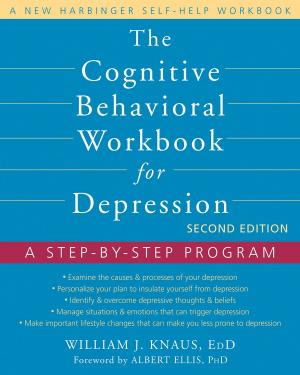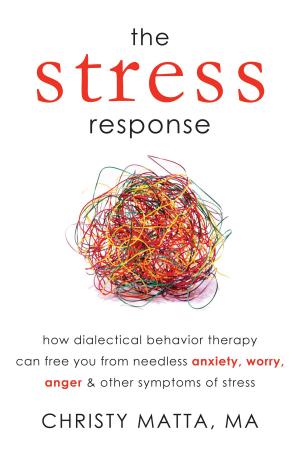ACT Verbatim for Depression and Anxiety
Annotated Transcripts for Learning Acceptance and Commitment Therapy
Nonfiction, Health & Well Being, Psychology, Clinical Psychology| Author: | Steven C. Hayes, PhD, Michael Twohig, PhD | ISBN: | 9781608825080 |
| Publisher: | New Harbinger Publications | Publication: | May 1, 2008 |
| Imprint: | New Harbinger Publications | Language: | English |
| Author: | Steven C. Hayes, PhD, Michael Twohig, PhD |
| ISBN: | 9781608825080 |
| Publisher: | New Harbinger Publications |
| Publication: | May 1, 2008 |
| Imprint: | New Harbinger Publications |
| Language: | English |
Copublished with Context Press
This collection of transcripts, organized and annotated by Michael P. Twohig and acceptance and commitment therapy (ACT) founder Steven C. Hayes, guides you through ACT-based therapy processes session-by-session. The transcripts featured in ACT Verbatim present common situations that arise in clinical practice, while the commentary explains how to identify the six target ACT processes and help clients work through them to achieve psychological flexibility.
For the most detailed view of ACT therapy, the clinical transcripts included here follow the development of one client struggling with anger, anxiety, and depression. Since ACT is process- rather than technique-oriented, this kind of in the moment analysis is a singularly effective way to learn to apply this therapeutic model.
These transcripts will help you:
•Identify client indicators that suggest you should target a specific process in therapy
•Create useful exercises to foster client development in the core processes of ACT
•Evaluate client advancement and structure sessions for maximum progress
•Learn the different styles other therapists use to implement ACT in their own ways
Copublished with Context Press
This collection of transcripts, organized and annotated by Michael P. Twohig and acceptance and commitment therapy (ACT) founder Steven C. Hayes, guides you through ACT-based therapy processes session-by-session. The transcripts featured in ACT Verbatim present common situations that arise in clinical practice, while the commentary explains how to identify the six target ACT processes and help clients work through them to achieve psychological flexibility.
For the most detailed view of ACT therapy, the clinical transcripts included here follow the development of one client struggling with anger, anxiety, and depression. Since ACT is process- rather than technique-oriented, this kind of in the moment analysis is a singularly effective way to learn to apply this therapeutic model.
These transcripts will help you:
•Identify client indicators that suggest you should target a specific process in therapy
•Create useful exercises to foster client development in the core processes of ACT
•Evaluate client advancement and structure sessions for maximum progress
•Learn the different styles other therapists use to implement ACT in their own ways















